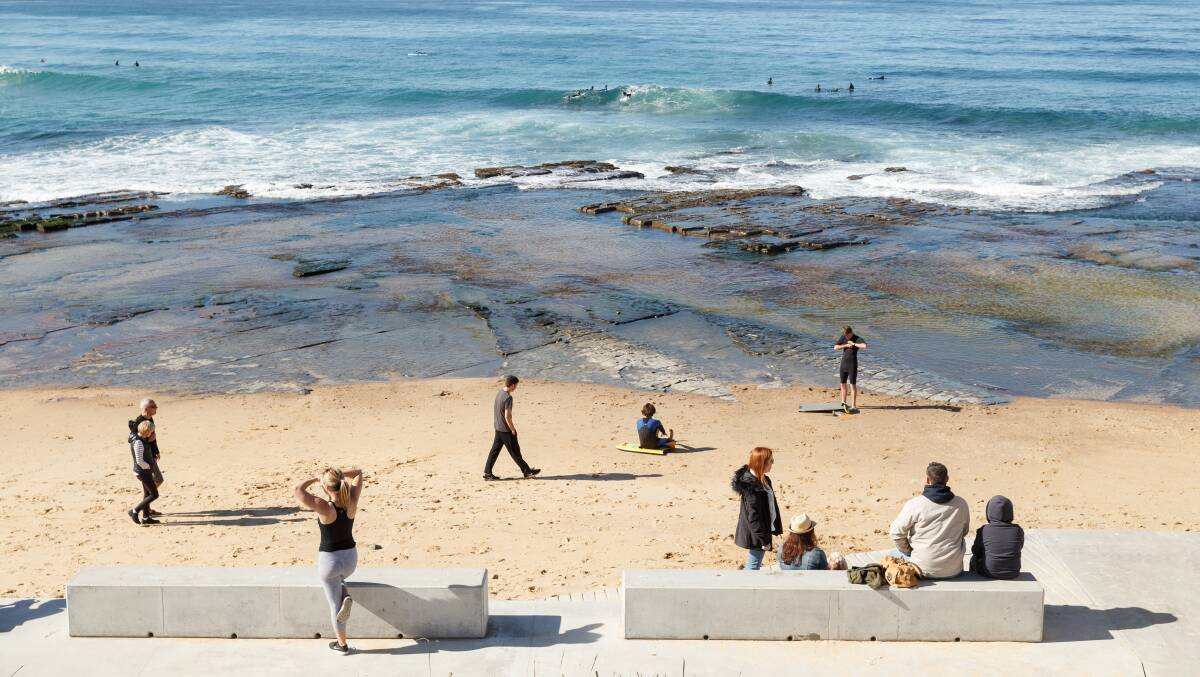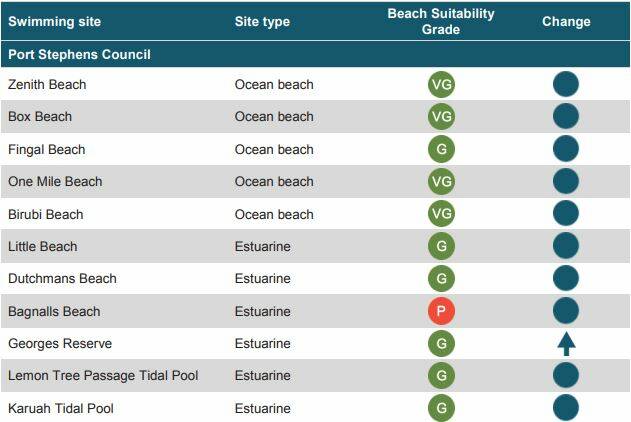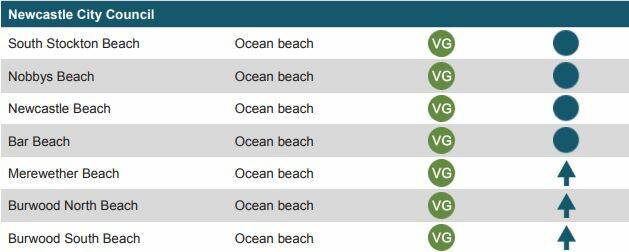
WATER conditions have improved at Merewether and Burwood beaches, according to a state government survey on water quality.
Subscribe now for unlimited access.
$0/
(min cost $0)
or signup to continue reading
A state government report has detailed the findings from Office of Environment and Heritage beach monitoring since 1989, examining 241 swimming sites against the National Health and Medical Research Council’s guidelines for managing risks in recreational water.
While more than 80 per cent of Hunter beaches got a clean bill of health, several were deemed a risk for swimmers during and days after rainfall. Bagnalls beach, Speers Point Park lagoon, Eleebana’s Lions Park, Swansea and Cams Wharf were given Poor beach suitability grades, while Bolton Point ranked as Fair.
All other Hunter beaches surveyed received either a good or very good grade. All beaches within the Newcastle City Council footprint were branded Very Good.
Poor ratings show a beach is “susceptible to faecal pollution and microbial water quality is not always suitable for swimming”. Both Fair and Poor beaches should be avoided for three days after rainfall, the report notes.
Overall, 84 per cent of the Hunter’s 38 surveyed swimming spots were given green lights, with ratings of either good or very good. Seven sites improved on the previous year’s results.

“For the first time since 2010, 85 per cent of the state’s swimming sites are rated ‘good’ or ‘very good’, and there have been improvements across the board,” NSW Environment Minister Gabrielle Upton said.
“In addition, a staggering 98 per cent of ocean beaches were shown to be clean and safe, as were four of the five ocean baths.”
90 per cent of Sydney’s 97 sites were in the green while 53 per cent on the Central Coast were good or very good.
The decline compared to the previous year on the Central Coast was attributed to changes in the monitoring program rather than the water quality itself.

“While this is an excellent result, reflecting prolonged dry weather conditions in many coastal areas, significant rainfall events impacted water quality at some swimming sites,” the report notes.
“Many estuarine and lake and lagoon swimming sites did not perform as well as the ocean beaches, being more susceptible to the impacts from wet weather conditions.”
Local councils and water authorities are responsible for swimming spot cleanliness, Ms Upton said.


